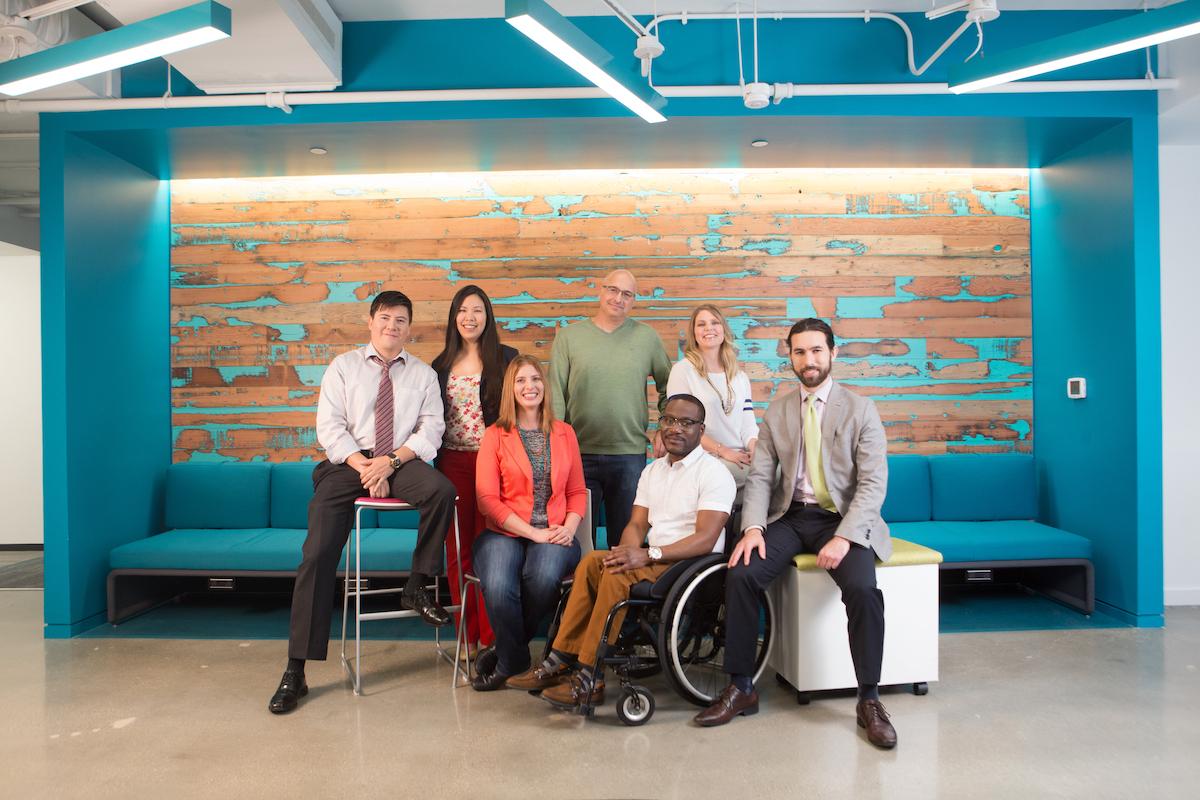Booz Allen Celebrates 30 Years of the Americans with Disabilities Act

The Americans with Disabilities Act (ADA) was “a response to an appalling problem: widespread, systemic, inhumane discrimination against people with disabilities,” in the words of Robert L. Burgdorf, Jr., author of the original version of the bill that was introduced to Congress. When the ADA was signed into law in 1990, it became illegal to discriminate against people with disabilities in employment, transportation, public accommodations, commercial facilities, telecommunications, and state and local government services. In the 30 years since the ADA’s passage, the United States has become a global leader in disability rights, inspiring similar legislation in nations from Jamaica to South Africa.
As a leader in disability inclusion, Booz Allen® supports employees with accessible technologies and groups like its Global Disabilities Business Resource Group (BRG), whose mission is to foster an inclusive and supportive workplace that values diverse thinking and differences, and empower the disability community to change the world. In a recent virtual panel celebrating the ADA’s 30th anniversary, leaders from inside and outside Booz Allen gathered to talk about how the ADA has shaped lives and careers and what the future can bring.
A day of reflection and vision
“One in 4 adults in the U.S. has a disability—that’s one quarter of the talent pool,” said Booz Allen Executive Vice President and Chief Innovation Officer Susan Penfield, who moderated the discussion. “There’s a real imperative to better understand and destigmatize disability so we can design work environments that enable everyone to thrive.”
For Booz Allen Vice President Brian MacCarthy, the new executive sponsor of the Global Disabilities BRG, the ADA’s recent milestone is just the beginning. During the panel he talked about what’s next for the Disabilities BRG at Booz Allen, describing the firm as a place that “really empowers everyone with a disability to bring their whole self to work.” His goals include increasing support through technology, increasing community involvement, allyship, and advocacy, as well as partnering with peers and the academic community to build a sustainable talent pipeline.
Special guest Claudia Gordon spoke about her experiences working on disability policy for the Obama Administration, her perspectives as a female Black deaf lawyer, and her thoughts on the ADA’s impact. “The ADA shifted the way society views people with disabilities. It has instilled pride,” Gordon said. “People understand this is not charity; it’s a right—a civil right.”
“Accessibility is where technology meets empathy,” said Global Disabilities BRG Co-Chair Eric Wright, who has cerebral palsy. He encouraged listeners to “challenge your assumptions. Challenge the way we’ve always done things. Invite people with disabilities to be part of your development team. It’s always possible to make things accessible,” he said.
Expanding perspectives and support
When reflecting on how the Global Disabilities BRG plans to grow this initiative through a regular series of panel discussions, fireside chats, meet-ups, and podcasts, Penfield shared the BRG acts as a “opportunity to create allyship across the firm.”
Panelists also talked about the role of innovation in accessibility. In the coming months, the Disabilities BRG also plans to host demonstrations of adaptive and assistive technologies—which have become more important than ever during COVID-19. “Augmented and virtual reality, 5G, digital edge computing— all of that convergence will change the game for accessible technology,” Penfield said.
“This current moment in history puts into perspective that technology is vital to everything we do, from work to day-to-day activities like banking and ordering groceries,” said Wright. “We want to make sure everybody has access to these tools.”
Upcoming events, activities, and materials will feature interviews and personal stories that include perspectives on disability from parents and spouses, military veterans, and people with invisible disabilities, such as mental health, psychological, cognitive, and learning disabilities.
“Chances are, you know someone with a disability,” said Lead Technologist and Global Disabilities BRG Co-Chair Eli Hinson, who has hearing loss and dyslexia.
“You just never know what’s going on and the challenges that all of us face day in and day out,” MacCarthy said. He recently shared his own story in a newsletter to Booz Allen’s Global Disabilities BRG. Having just turned 43, “not bad for an old guy with cystic fibrosis,” he wrote, “I’ve never had more energy to fight to live than I do at this moment. I promise to work hard for anyone with a disability (visible or invisible), be an empathetic leader, and be an ally to those who need one.”
Read more about the Americans with Disabilities Act and diversity, equity and inclusion at Booz Allen.

